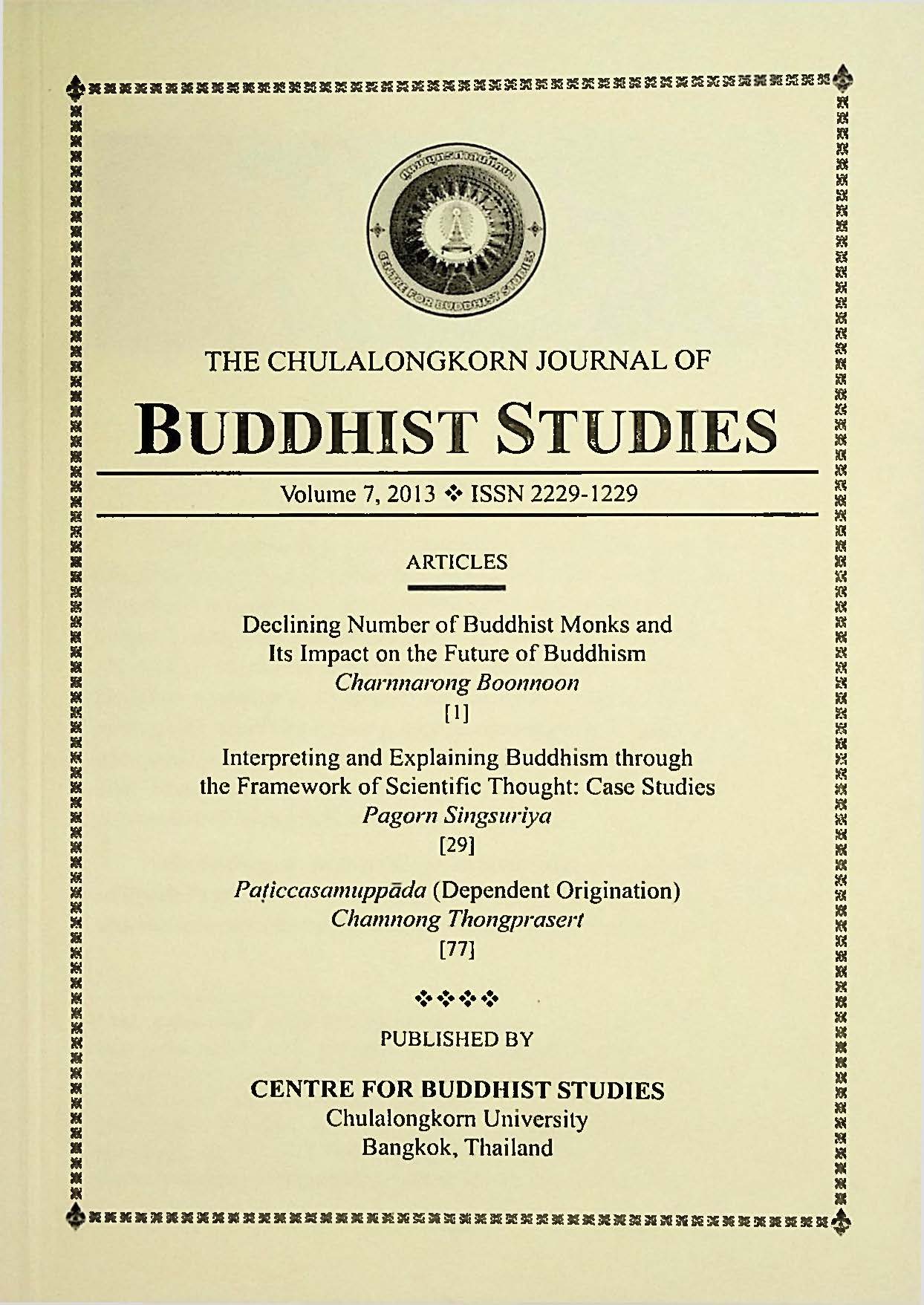Declining Number of Buddhist Monks and Its Impact on the Future of Buddhism
Abstract
This paper builds on the research project “Report on Preliminary Observations on Trends of Number and Quality of Buddhist Monks in Rural Thailand,” supported by Princess Maha Chakri Sirindhom Anthropology Center (public organization) in 2007. The objectives of the project were to (1) conduct a qualitative survey on the causes of the declining number of Buddhist monks and its impact on the rural community, and (2) make preliminary observations and policy recommendations on the situation. The survey adopts a statistical approach covering the period between 1999 and 2006 based on various documents and field surveys in some areas of the provinces of Chiang Mai and Ubon Ratchahani.
The findings show that the period under study saw a declining number of Buddhist monks and novices, and that the decline had nothing to do with economic factors. Rather, it was caused by the following: public education was more accessible to the rural community; the education provided by the Sangha was not appropriate to the changing society and values; the rural labor sector had changed; and rural households had fewer children and would prefer to have them spend shorter time in monkhood. On the other hand, the statistical survey between 2007 and 2010 reveals a slight increase in the number of the monks, but a decrease in the number of novices. The overall picture, however, points to a reduced number of both groups.







